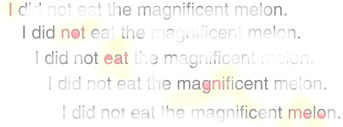 |
Greg
Kochanski |
 |
Question
Hello,
I am the volunteer administrator for the ZZZ and Black Cohosh
Information Center, ... and how to effectively ease its symptoms.
In our efforts to promote awareness about ZZZ, we have been
looking for websites to exchange links with. ...
If you will link to "The ZZZ and Black Cohosh Information
Center", located at ZZZ and send me an email listing where the
link can be found on your site, I will add your reciprocal link
to our site within 24 hours.
Answer
Dear Ms. Whitley,
I really can't endorse Black Cohosh for much of anything
unless I see some proper studies that prove it works.
It's a matter of professional standards and personal
ethics.
Many people believe that a few individual testimonials are a
good enough reason to try something or recommend it, but that's
not so. Let me give you a story.
Imagine that (I'm sure it's not so!) half of the people who
use Black Cohosh get better, and half die within a week. Will you
still get testimonials? You betcha! The recovered ones will
burble away, and the dead ones will be quite quiet. Even an
opinion poll of users will indicate that 100% of the respondents
are happy with the stuff.
So, you have to be careful. Nature is not malicious, but
nature is sometimes rather complex and confusing.
The techniques for being careful are really the core of
medical science that we've learned over the last few hundred
years. In a proper study, you
- Follow all the patients as well as you can (to make sure
the dead ones don't lie silently).
- Always compare people getting the treatment against a
similar group of people who don't get the treatment. This is
called a "control group". People sometimes feel better without
any help, all by themselves, and you have to find out how many
will get better without Black Cohosh.
After all, if you want to know if Black Chohosh is better
than nothing, you need to find out how good is nothing!
- If possible, you don't tell the patients if they are
getting Black Cohosh or not. Why? Because we've learned that
some people feel better if they believe in a treatment. Any
treatment.
- This is called the placebo effect. (See the ONION for
a humorous look at the placebo effect.) It seems that giving a
person a pill filled with sugar, or a shot of pure distilled
water will (if they believe it is a real treatment), often make
people feel much better. The placebo effect is a bit
mysterious! Still, unless Black Cohosh does better than a sugar
pill (or a little lump of bread, or some other cheap, safe, and
known harmless placebo) why use it? Unless the stuff works
better than chocolate, why not give them chocolate?
- If possible, don't even tell the people doing the
experiment. We've learned not to trust ourselves completely,
either. Doctors and scientists have hopes and beliefs, and if
they believe that the patient should be getting better, we will
often believe that the patient really is getting better.
- But, it's a cruel hoax to let your hopes and
emotions influence the study. Ultimately, what counts is
whether the patients get better, not what the doctors feel. So,
good experimenters will do what is called a 'double-blind'
experiment. No one, not the patients, not the doctor knows who
is getting what until it's all written down on paper. Only then
do you open the envelope and see who got what.
So, I'd love to exchange links, but only if you have something
that really works.



